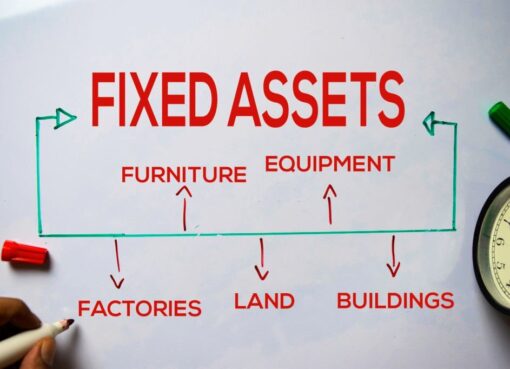Contents
Introduction:
In the world of real estate and business transactions, two common methods of acquiring property or assets are through lease agreements and sales transactions. Both options have their unique advantages and considerations, making it essential to conduct a comprehensive analysis to determine the most suitable approach.
This blog aims to provide a comprehensive analysis of lease and sales, highlighting their differences, benefits, and factors to consider when making informed decisions.
Understanding Lease:
Leasing refers to an agreement between a lessor (owner) and a lessee (user) where the lessor grants the lessee the right to use a property or asset for a specified period in exchange for periodic payments, known as rent. Key points to consider about leasing include:
Flexibility: Leases offer flexibility in terms of the lease term and the ability to upgrade or downsize the leased property or asset as needs change. This flexibility can be advantageous for businesses experiencing growth or uncertain market conditions. Leasing offers businesses the flexibility to acquire assets without large upfront costs, making it suitable for short-term or rapidly evolving needs.
Cost Management: Leasing can be an attractive option when capital constraints prevent outright purchases. It requires less upfront investment compared to a purchase, as leasing typically involves lower initial costs and smaller recurring payments. Leasing allows for predictable budgeting as lease payments are typically fixed for the duration of the lease term.
Maintenance Responsibility: Depending on the lease agreement, the responsibility for maintenance and repairs may lie with the lessor. This relieves the lessee from the burden of upkeep costs, which can be significant in the case of property or equipment. In most leasing arrangements, the lessor is responsible for maintaining and repairing the leased asset, reducing the lessee’s burden.
Limited Ownership Rights: Lessees do not have ownership rights over the leased asset, which means they cannot modify or sell it without the lessor’s consent.
Exploring Sales:
Sales, on the other hand, involve the transfer of ownership of a property or asset from a seller to a buyer in exchange for a mutually agreed-upon price. Here are some key considerations when it comes to sales:
Ownership: Purchasing a property or asset through sales grants the buyer full ownership and control over the asset, allowing for modifications, renovations, or resale without restrictions.
Long-Term Investment: Purchasing a property or asset can be a long-term investment with the potential for appreciation over time. It provides stability and the ability to build equity, especially in real estate. Sales transactions often represent a long-term investment as the buyer assumes the asset’s value appreciation or depreciation over time.
Tax Implications: Sales may involve additional costs such as taxes, closing costs, and ongoing maintenance expenses that the buyer needs to factor into their budget.
Customization: Buyers have the freedom to customize the asset according to their specific needs and preferences, enabling greater control over the property.Ownership grants complete control over the property or asset, allowing for customization, renovations, and branding opportunities. This level of control can be vital for businesses that require specific configurations or branding presence.
Factors to Consider when Choosing between Lease and Sales:
When deciding between lease and sales options, consider the following factors:
Financial Resources: Purchasing a property or asset can be a long-term investment with the potential for appreciation over time. It provides stability and the ability to build equity, especially in real estate. Assess your available financial resources, including cash flow, budget, and capital, to determine whether leasing or purchasing aligns with your financial capacity.
Duration of Need: Evaluate the duration for which you require the property or asset. If it’s a short-term requirement, leasing might be more suitable, while long-term needs might justify a purchase.
Strategic Goals: Consider your long-term strategic goals. If asset ownership and control are crucial for your business, sales may align better with your objectives.
Market Conditions: Understanding market trends, property valuations, and potential growth prospects in the area where the property or asset is located is crucial for making an informed decision. Researching market conditions and consulting real estate professionals can help assess the potential return on investment. Research market conditions, including interest rates, rental rates, and property values, to understand the financial implications and potential returns of leasing versus sales.
Conclusion:
Lease and sales options offer different benefits and considerations for businesses and individuals. Lease provides flexibility, cost management, and reduced maintenance responsibility, while sales offer ownership, long-term investment potential, and customization opportunities.
Carefully assessing factors such as financial resources, duration of need, strategic goals, and market conditions can help you make an informed decision between lease and sales, aligning with your unique requirements and objectives.
Ultimately, understanding the differences between lease and sales empowers you to choose the option that best suits your needs and maximizes your financial potential.
Read: Pension Administration and Management
Are you ready to enhance your knowledge of lease and sales analysis? Enroll now in our comprehensive Lease and Sales Analysis Course and take your skills to the next level!
Join us and delve deep into the intricacies involved in lease and sales transactions. With this course, you will learn how to analyze lease agreements and sales transactions effectively, while identifying key factors to consider in making informed decisions. Whether you’re a real estate professional, business owner, or simply eager to expand your knowledge, this course is tailored for you.
Don’t miss out on this golden opportunity to sharpen your analytical skills and become a master of lease and sales analysis. Enroll today and unlock your potential in the world of real estate and business transactions!
Click here to register now and secure your spot in the Lease and Sales Analysis Course. Embark on your journey towards expertise today!
We have a firm belief that every organization has a unique purpose only they can fulfil in this world. We work with you in organizing your resources to exploit opportunities so that you can fulfil your purpose and realize full potential. We build the capacity of people, processes and systems for organizational success and growth as well as nurturing a thriving ecosystem.
Ready to enhance your skills and boost your career? Explore our corporate training programs now and start your journey to success.








Comment here